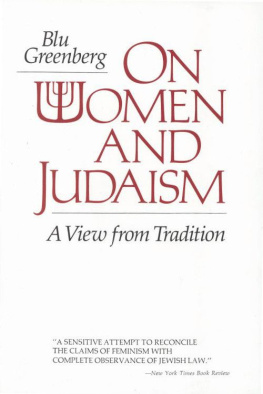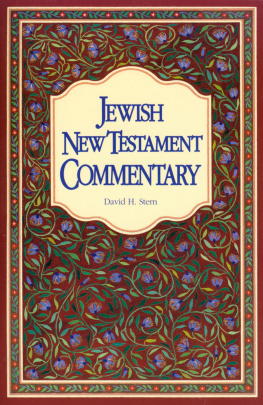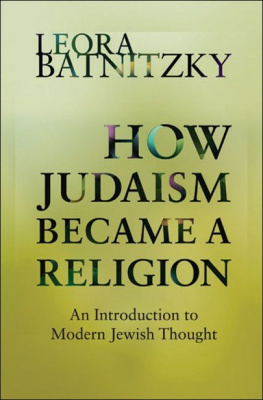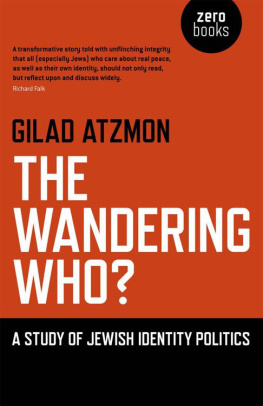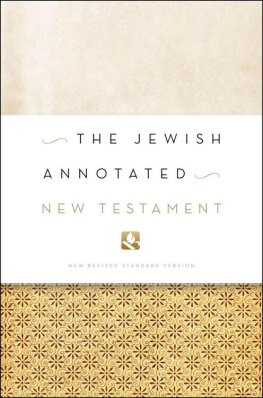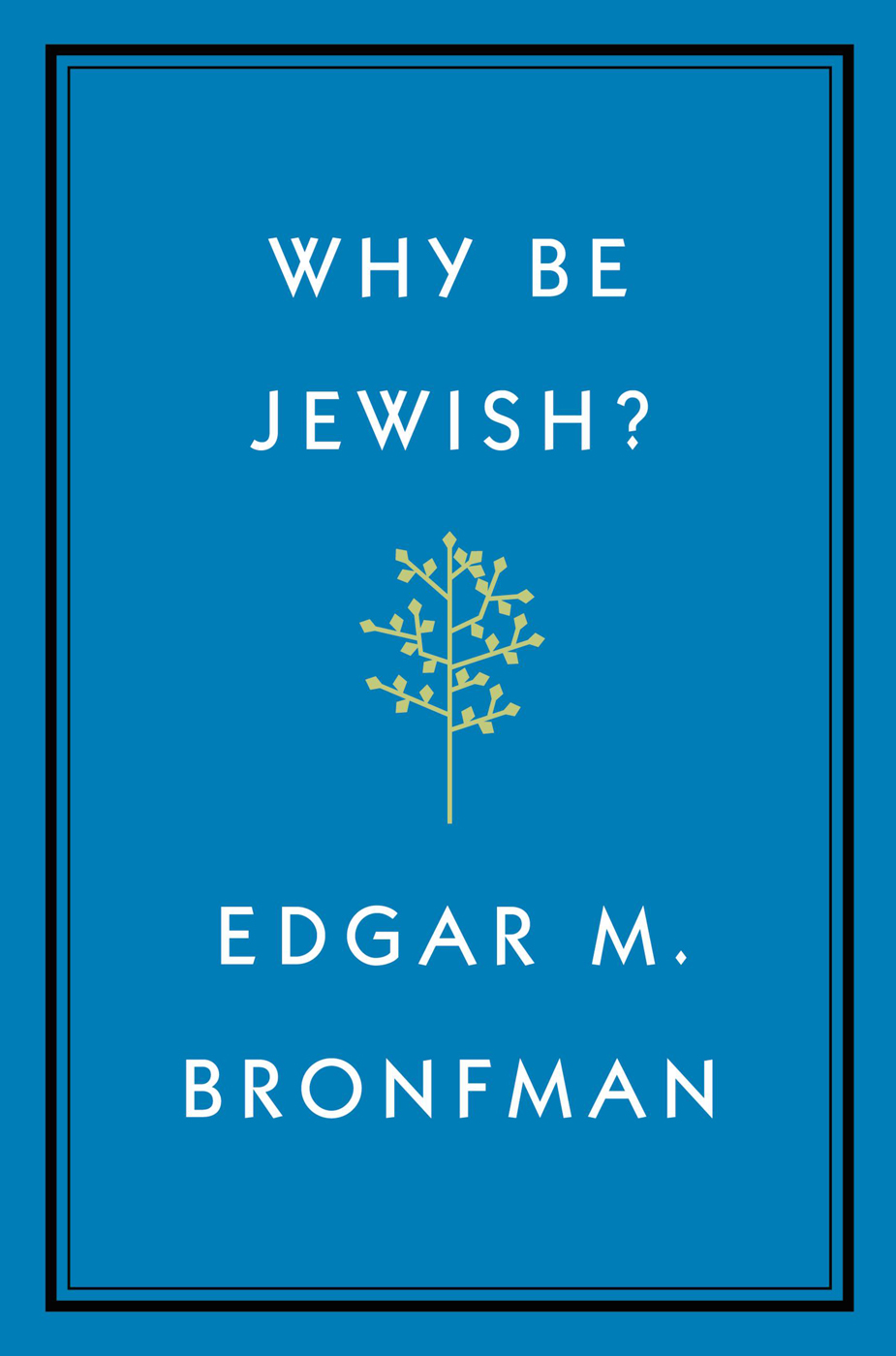Thank you for buying this ebook, published by HachetteDigital.
To receive special offers, bonus content, and news about ourlatest ebooks and apps, sign up for our newsletters.
Copyright 2016 by Edgar M. Bronfman
Foreword copyright 2016 by Angela Warnick Buchdahl
Cover design by Christopher Brian King
Tree logo by Marc Friedland / Marc Friedland Couture Communications
Cover copyright 2016 by Hachette Book Group, Inc.
All rights reserved. In accordance with the U.S. Copyright Act of 1976, the scanning, uploading, and electronic sharing of any part of this book without the permission of the publisher constitute unlawful piracy and theft of the authors intellectual property. If you would like to use material from the book (other than for review purposes), prior written permission must be obtained by contacting the publisher at permissions@hbgusa.com. Thank you for your support of the authors rights.
Twelve
Hachette Book Group
1290 Avenue of the Americas, New York, NY 10104
hachettebookgroup.com
twitter.com/grandcentralpub
First ebook edition: March 2016
Twelve is an imprint of Grand Central Publishing.
The Twelve name and logo are trademarks of Hachette Book Group, Inc.
The publisher is not responsible for websites (or their content) that are not owned by the publisher.
The Hachette Speakers Bureau provides a wide range of authors for speaking events. To find out more, go to www.hachettespeakersbureau.com or call (866) 376-6591.
Excerpt in from Ive Been to the Moutaintop copyright 1968 by Dr. Martin Luther King Jr, renewed 1996 by Coretta Scott King. Reprinted by arrangement with The Heirs to the Estate of Martin Luther King Jr., c/o Writers House as agent for the proprietor, New York, NY.
ISBN 978-1-4555-6288-6
E3
Before I ever had the privilege of meeting Edgar Bronfman, he had already changed my life. At the age of sixteen, I was selected to be one of twenty-five North American Jews in the third class of Bronfman Fellows in Israel. That summer of 1989, as a pluralistic family of Bronfmanim, we unpacked Jewish texts, traveled the land of Israel, learned from literary and cultural giants, and challenged each others beliefs. That summer transformed my Jewish identity and inspired me to become a rabbi. I find it somewhat hard to believe that a few decades later I would be invited to write the foreword for what would be Edgar Bronfmans last book. As a young woman, born in South Korea, I was a most unlikely candidate ever to become a rabbi, and I am deeply honored to write a foreword for the man most responsible for my involvement in the Jewish world. His vision lives on in the many young people whose lives he transformed, and who are finding in Judaism the qualities he so valued: a sense of joy, a love of learning and questioning, and an imperative to leave the world a better place than you found it.
Had I not been a Bronfman Fellow that fateful summer, it is likely that I would be among the growing number of younger Jews who feel disenfranchised from organized Jewish life. The most recent Pew Report on Jewish life (2013) indicates that the fastest-growing identification among younger Jews is Jews of no religion. This trend falls right in line with larger ones in all American religions. There is an increasing secularization among the younger population, even as many of them identify as being spiritual or seekers. For many Americans of a younger generation, religious life and language have become associated with a more right-leaning political orientation and worldview. God-language is challenging and off-putting, and thereby leads to a rejection of all things religious. Unfortunately, too many Jews dont realize that religion is only one strand in the ever-changing Jewish tapestry.
Edgar Bronfmans Why Be Jewish? offers a compelling invitation for younger generations, and Jews of all ages, to take another look at Judaism, irrespective of the religious aspects of the tradition. Edgar describes a substantive and meaningful Jewish identification that does not require a belief in a supreme being to be transformative. He begins his book by recounting how he walked away from his own practice as a young man, and only found his way back when he was almost sixty years old. Like the Talmudic story of Rabbi Akiva, who begins learning the Hebrew alphabet at the age of forty, Edgar exemplified in his own life that it is never too late to become a serious student of our tradition. In his many years of study, he developed a deep appreciation for Jewish textsthe values they embody, the discourse and argumentation they engender, the miracle of our historical Jewish dramaand an abiding love for Jewish people around the world.
Edgar titles the first chapter of his book Beyond Belief. These two simple words suggest many layers of literal and symbolic meaning. In rabbinic tradition, the Hebrew/Aramaic word Pardes refers to an orchard or garden. As an acronym, PRDS is an approach to biblical exegesis, representing four approaches to understanding a text: pshat (simple or literal); remez (allegorical meaning); derash (seek); and sod (the mysterious or esoteric).
On a simple or pshat level, the book strongly advocates for a Judaism that can be beyond beliefnot requiring a belief in God, and yet compelling in its meaning and moral mandates. Edgar also implicitly drashes, or comments, on a book of the same title by the preeminent twentieth-century American sociologist of religion, Robert Bellah. Beyond Belief, published in 1970, is a collection of Bellahs essays and includes his seminal article Civil Religion in America. Bellah understood that there could be an embrace of a common American civil religion with shared sacred texts, rituals, holidays, and values independent of a persons chosen religion or religion of birth. Edgar picks up on this theme of a kind of civil or secular religious approach to Judaism, emphasizing those shared aspects enumerated above, as a means of creating a Judaism and a Jewish community that can be transcendent and unifying, irrespective of your particular belief in God.
On the deepest level, the sod, Why Be Jewish? expresses Edgar Bronfmans awe, respect, and deep love for Judaism. This manifesto is a passionate testimonial to his personal journey and to the incredible story of the Jewish people, who against all odds have changed the world. As a rabbi, I was prepared to be a little defensive on reading a book that advocates for a Jewish identity that can be beyond a belief in God. While I acknowledge that one can be a Jew and not believe in God, I have spent my career as a rabbi trying to expand the definition of God from a solely biblical view of an anthropomorphic, omnipotent God to experiences of the divine that can be understood in the wonder of creation, in moments of moral courage, and in extraordinary acts of human goodness.
Edgar beautifully frames this challenge with compelling language that completely resonates with the desire to understand the divine in an expanded, rational way. He posits that while he does not believe in a supernatural God, he practices a Judaism that encourages us to aspire to godliness: the true, the good, and the beautiful. He does not seek to strip Judaism and our approach to the world to what he calls an antiseptic atheism that bleaches away all natural wonder and beauty. Instead, with humility, he acknowledges the mystery beyond our comprehension. He embraces a new secularism that includes an appreciation for the natural miracles of the world and the moral miracles that are reflected in amazing acts of human kindness and decency. I am grateful for Edgars reasoned articulation of a form of secularism rich with the kind of godliness that Judaism aspires to bring to the world.


